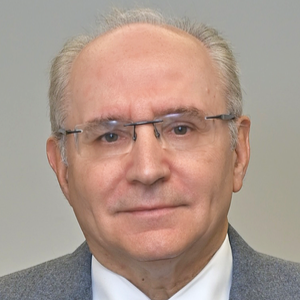While the merits of having a last will and testament versus a revocable living trust are a common topic of debate, less frequently discussed are the consequences of not having a last will and testament at all.
It’s important to remember that a last will only disposes of assets you have in your name alone upon your death. The will does not dispose of assets titled jointly with another, with rights of survivorship, assets or life insurance that have named beneficiaries—as “in trust for accounts payable on death”— “transfer on death” accounts or retirement accounts (an IRA, 401(k) and the like). A last will enables you to state specifically how and to whom your solely titled assets (your estate, that is) are to be disposed of upon your demise. It can provide that the assets be disposed of outright to the beneficiary or that they remain in trust for the beneficiary until a specific event has occurred or a certain time or age has been reached. Additionally, you can nominate the individual(s) or corporate entity—a bank or trust company, say—that you want to manage your assets, known as the executors and/or trustees. Once the will has been admitted to probate by the surrogate’s court in the county of your residence, the nominated executor or executors receive letters testamentary.
Once appointed by the court, the executor can then marshal the estate assets, pay any outstanding bills—funeral or medical expenses, credit card debt—or taxes, including personal and estate taxes. Once this is done, the executor can distribute the assets to the named beneficiaries.
You will have lost the ability to decide to whom, and in what percentages, your friends and loved ones will receive your assets.”
If you die with assets in your name alone (not jointly and with no named beneficiary), however, things will be vastly different. Without a last will, your assets will pass according to the laws of intestate distribution in New York, pursuant to the provisions of New York’s Estates, Powers and Trusts Law (EPTL). You will have lost the ability to decide to whom, and in what percentages, your friends and loved ones will receive your assets.
Under New York’s EPTL, for example, if you die with a surviving spouse and children, your spouse receives the first $50,000 and half of the balance, while your kids receive the remaining balance in equal shares. Had you always wanted a sibling or friends to receive part of your estate, you’d be out of luck.
Additionally, if you die without a last will and leave no surviving family, your estate will “escheat” to New York State. This means the state itself will become your beneficiary—an outcome the vast majority of New Yorkers would surely be horrified by. (It’s important to note that adopted children are treated the same as biological children under the rules of intestate distribution. Stepchildren and foster children do not receive an intestate share.)
As if losing the ability to choose your beneficiaries and the amounts they receive isn’t bad enough, should you die without a last will, under New York’s Surrogate’s Court Procedure Act (SPCA), the person given priority to be appointed your estate’s administrator is to be determined by law. The priority order is your surviving spouse; children; grandchildren; your father or mother; siblings; and anyone who is a distributee (one who would stand to inherit assets, that is) who is eligible and who qualifies, with preference to the individual entitled to the largest share of the estate. If there are eligible distributees equally entitled to be appointed—when more than one child survives but no spouse does, for example—the court can grant letters of administration to one or more of them.
This means the state itself will become your beneficiary—an outcome the vast majority of New Yorkers would surely be horrified by.”
In short, the consequences of not having a properly drafted and executed last will are significant. You lose the ability to decide who will receive your estate and in what amounts, as well as who will be given the authority to manage and dispose of your estate upon your death. A last will and testament is imperative—don’t leave this world without it.
Anthony J. Enea is a member of Enea, Scanlan and Sirignano, LLP in White Plains, New York. A past chair of the New York State Bar Association's Elder Law & Special Needs Section and 50+ Section, Anthony focuses his practice on Wills, Trusts and Estates and Elder Law. He can be reached at (914) 948-1500 or by visiting www.esslawfirm.com.































